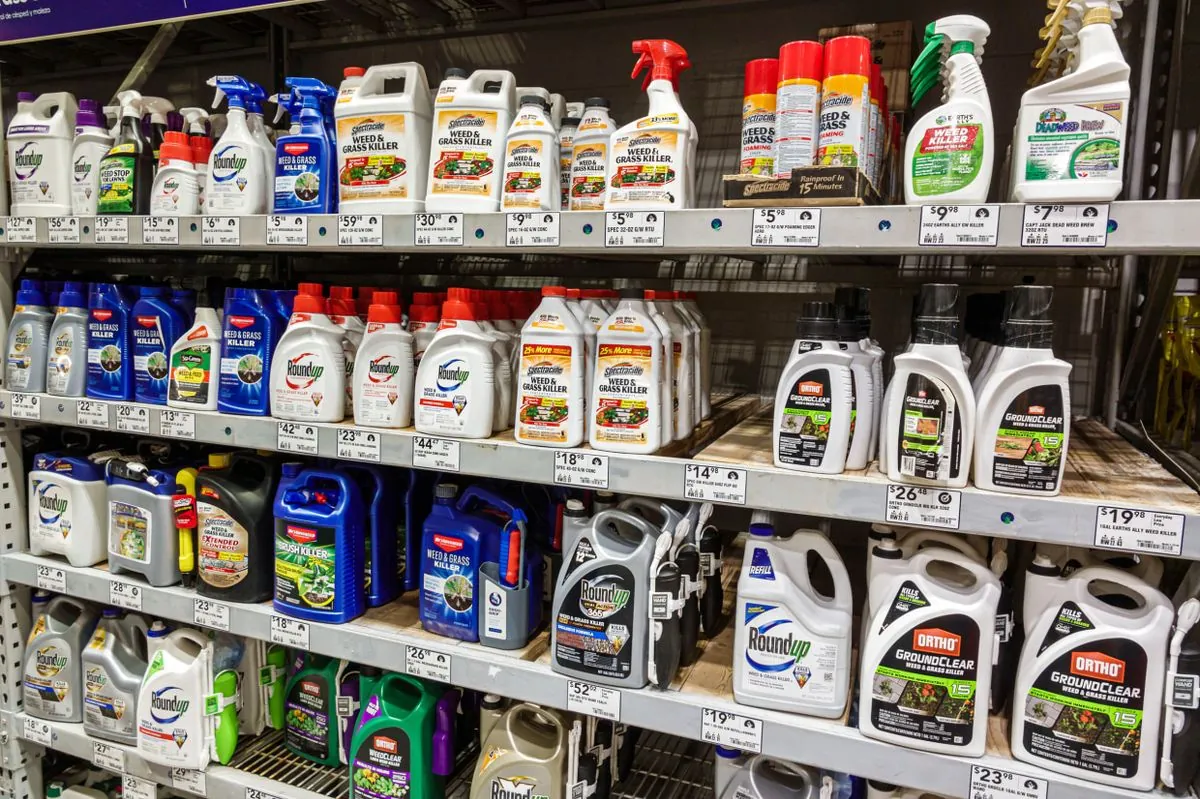Bayer Wins Key Roundup Case, Sparking Stock Surge and Legal Implications
Bayer secures legal victory in Roundup cancer lawsuit, potentially limiting future liabilities. U.S. appeals court ruling conflicts with other decisions, raising possibility of Supreme Court involvement.

Bayer AG has achieved a significant legal victory in its ongoing battle against Roundup-related cancer claims. On August 16, 2024, a U.S. appeals court ruled that federal law protects the German company from a lawsuit filed by a Pennsylvania landscaper, causing Bayer's shares to surge by 13.2% in Friday trading.
The 3rd U.S. Circuit Court of Appeals in Philadelphia rejected David Schaffner's claim that Monsanto, a Bayer subsidiary, violated state law by not including a cancer warning on Roundup's label. Schaffner, diagnosed with non-Hodgkin's lymphoma in 2006, sued Bayer in 2019 along with his wife Theresa.
Chief Judge Michael Chagares, writing for a unanimous three-judge panel, stated that the Federal Insecticide, Fungicide, and Rodenticide Act (FIFRA) mandates nationwide uniformity in pesticide labels, preventing Pennsylvania from requiring an additional cancer warning. This decision aligns with FIFRA's original intent when it was first passed in 1947.

However, this ruling conflicts with decisions from federal appeals courts in San Francisco and Atlanta in similar cases. This discrepancy raises the possibility of U.S. Supreme Court involvement to resolve the split, potentially as early as next year. It's worth noting that the Supreme Court receives about 7,000-8,000 petitions each term but only hears oral arguments in about 80 cases.
Bayer has faced extensive litigation over Roundup since acquiring Monsanto for $63 billion in June 2018, the largest all-cash deal at the time. The company's share price has fallen more than 73% since the acquisition. Despite settling much of the litigation for $10.9 billion in 2020, Bayer still faces approximately 58,000 claims, with another 114,000 settled or rejected.
The German company has consistently maintained that Roundup and its active ingredient, glyphosate, are safe. This stance is supported by various international bodies. The European Food Safety Authority concluded in 2015 that glyphosate is unlikely to pose a carcinogenic hazard to humans. Similarly, the U.S. Environmental Protection Agency reaffirmed in 2020 that glyphosate is not likely to be carcinogenic to humans.
Glyphosate, discovered as an herbicide by Monsanto chemist John E. Franz in 1970, is now registered in over 130 countries and approved for use on more than 100 crops. Roundup, first introduced to the market in 1974, has become one of the most widely used weed killers in the United States.
Despite Bayer's recent legal victory, the company has faced mixed results in Roundup trials. Through July 23, 2024, Bayer had won 14 of 23 trials, but one victory was overturned on appeal, and the losses resulted in billions of dollars in damages awards.
"Federal law should not preempt their failure-to-warn claim."
As the legal landscape continues to evolve, Bayer remains optimistic about presenting its arguments to the Supreme Court. The company believes a favorable Supreme Court resolution could potentially bring the glyphosate litigation to an end. With the deadline to appeal the Atlanta decision set for September 5, 2024, all eyes are on Bayer's next legal move in this ongoing saga.


































